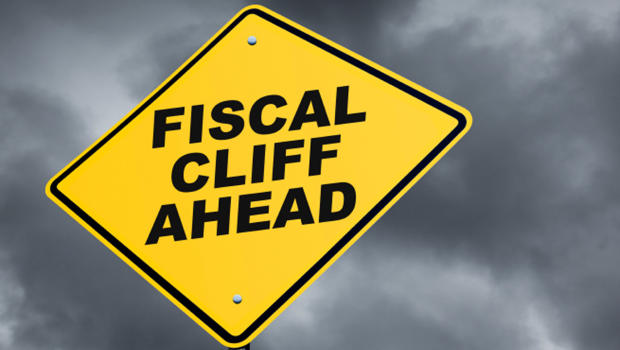Cliff Diving and Your Credit Union

by Brad Thaler, NAFCU
I love trying new things and don’t have a strong aversion to risk, but I have never been cliff diving and don’t anticipate I ever will. Partially due to my fear of heights, but more sensibly because it is one of the most dangerous adventure sports in the world with nicknames like “tombstoning” as one stares death in the eye from the top of the cliff. But in my job as a lobbyist for NAFCU, I am spending a lot of time these days worrying about a possible dive off a cliff in what is a dangerous time for credit unions.
Q: Why is this a dangerous time?
Unless you moved under a rock or swore off all news once the political ads started earlier this year (some folks wouldn’t blame you), you know about the pending “fiscal cliff” our country is facing at the end of this year. We are closing in on the end of last year’s temporary payroll tax cuts, certain tax breaks–including the “Bush” tax cut–and spending cuts agreed upon as part of the 2011 debt ceiling deal (also known as the sequester). The phase-out of these initiatives hitting at the same time will set our economy back significantly.
This has led to a call for action in Washington to do something. With threats to cancel the December holiday recess, Congress and the Obama Administration are attempting to broker some type of deal to avert a fiscal cliff dive come January. The consensus is that they may in essence “punt” and push many of the big decisions into next year.
Q: Ok, but why is this dangerous to my credit union?
While Democrats and Republicans in Washington don’t agree on much these days, one thing both sides do agree on is that we need some type of comprehensive tax reform and soon – which is being defined in Washington as next year. While there is currently no agreement on what this would look like, those who have a “tax expenditure” (a fancy term for certain tax exemptions – such as the credit union tax exemption) have been put on notice that they need to justify their existence. A number of well-respected groups have proposed eliminating all tax expenditures and starting over with the tax code as part of the rewrite.
Even though the bankers have attacked the credit union federal income tax exemption for years, they have historically met with little success. The times when the credit union exemption has faced the most serious threat were during budget crises and major tax reform in the mid-1980s and the early 1990s (when reading a President’s lips didn’t even keep tax increases off the table). While the industry was able to avoid taxation, serious proposals to tax credit unions saw the light of day during these debates.
Q: Wait a minute! That sounds a little bit like today…
Yes, the situation we face today is very similar to the situations that have historically placed the credit union tax exemption at the most risk. While our industry still accounts for a very small percentage of total household financial assets when compared to other financial services entities, credit unions are bigger today (and thus a bigger target) than a couple of decades ago. Credit unions in Australia and Canada have lost their tax exemption and lost a large number of their institutions as a result. Their credit union marketplace does not look the same post-taxation. The same thing could happen to us in the United States.
Q: What can we do about it?
At NAFCU, protecting the credit union federal income tax exemption is our number one priority. One of the most effective ways to do this is to ensure lawmakers are educated about credit unions and the good work we do. Elected officials have said that those who have tax expenditures need to be able to explain the value they deliver to the American people as a result of that expenditure.
To that end, NAFCU released a landmark study on the value of the credit union federal income tax exemption to consumers, businesses and the U.S. economy in September during our annual Congressional Caucus. You can view a copy of the study and its key findings at www.nafcu.org/cutaxexemption. The study found that the credit union exemption helps return over $10 billion in value to consumers on an annual basis. Moreover, it found that eliminating the tax exemption would result in a loss of 1.5 million jobs over the next decade and have such a negative impact on the GDP that the federal government would actually lose tax revenue.
Q: What can I do to help?
I encourage you to read the study and then take five minutes to call or write your elected representatives in Washington to explain the importance of the credit union federal tax exemption as they make critical decisions. You can easily contact them through NAFCU’s Grassroots Center by clicking here. Then, share this information with your members and encourage them to reach out to their members of Congress as well. Lastly, look for opportunities to get involved, like NAFCU’s 2013 Congressional Caucus next September, where joining with other credit union leaders to present a united front keeps your members and their best interests away from any dangerous cliffs.
If we all work together, maybe one day I will have a little more free time to take up an adventure sport—something safe—like indoor rock climbing.

